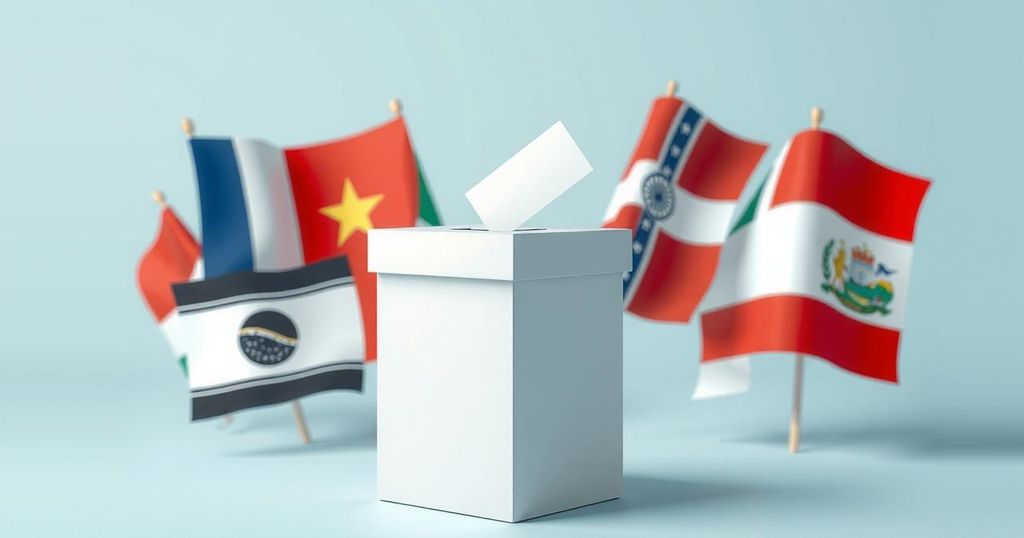Ecuador is holding a run-off election on April 13 between incumbent President Daniel Noboa and former National Assembly member Luisa González, following a tightly contested first round. Noboa received 44.28% of the vote, while González garnered 43.86%. The race exemplifies increasing political polarization amid concerns over crime, poverty, and energy shortages in the country.
Ecuador is poised for a run-off election on April 13, following a closely contested first round in which incumbent President Daniel Noboa received 44.28% of the vote, narrowly ahead of former National Assembly member Luisa González, who garnered 43.86%. A total of 14 other candidates managed to secure just 10% of the votes, highlighting increasing political polarization among Ecuadorian voters.
With none of the candidates achieving the necessary 50% threshold for victory or surpassing the 40% marker with a margin of 10% over their nearest rival, the run-off had to be scheduled. This election marks Noboa and González’s second face-off after Noboa previously triumphed in October 2023 due to the impeachment of then-President Guillermo Lasso.
The current president, who possesses a background in the banana industry, campaigned on a stringent law-and-order initiative. However, despite initial successful measures to enhance public security, Noboa has faced considerable criticism for his apparent inability to significantly reduce crime rates during his tenure.
Conversely, González, who served under leftist President Rafael Correa, has vowed to bolster military and police efforts to tackle escalating violence, while also advocating for increased social spending as a strategy to address the underlying issues of poverty and crime.
The Ecuadorian electorate is currently grappling with pressing concerns such as violence related to organized crime, energy shortages, and economic disparity. While homicide rates have declined under Noboa’s administration, they still remain alarmingly high, nine times greater than the global average, and many citizens face scheduled electricity blackouts attributed to drought conditions.
Leading up to the election, polls did not predict such a narrow outcome. Fernando León, an academic from the Universidad Internacional de Ecuador, noted that the political bifurcation reflected in these results is unprecedented in Ecuador’s history. This polarization is largely a product of declining living standards, exemplified by deteriorating security, employment opportunities, and access to essential services in the region.
The National Electoral Council (CNE) has arranged a mandatory presidential debate on March 23, which both candidates will participate in, allowing them to outline their respective visions for Ecuador’s future moving forward.
In conclusion, the Ecuadorian run-off election featuring Daniel Noboa and Luisa González will address critical issues such as crime, poverty, and public safety. The tight electoral race reflects a significant political polarization within the country, indicative of the electorate’s response to deteriorating living conditions and security concerns. The upcoming debate on March 23 is anticipated to further clarify each candidate’s stance on these pressing matters.
Original Source: latinamericareports.com






